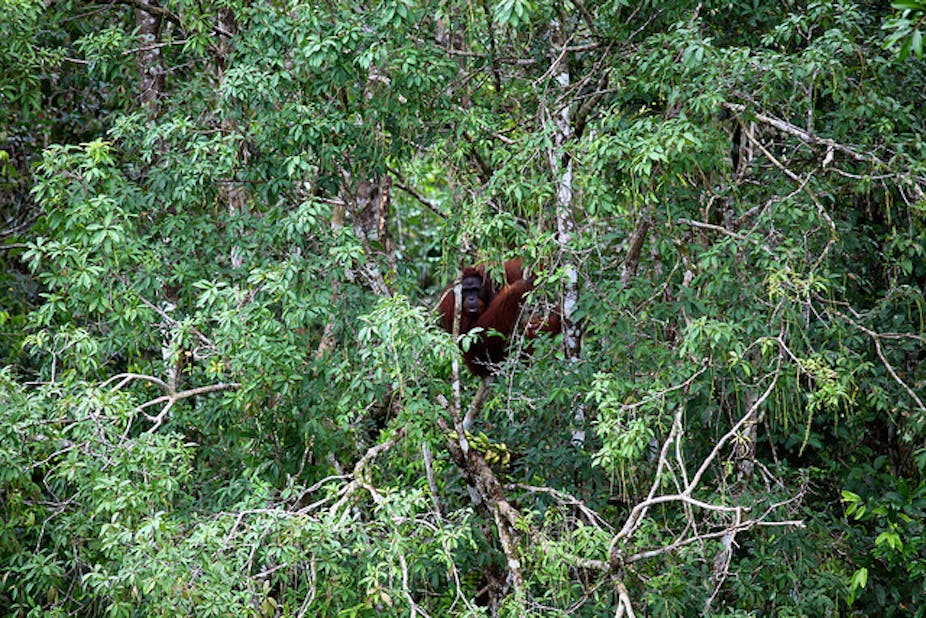Experts have welcomed the Indonesian government’s announcement it will approve a commercial forest preservation project aimed at generating carbon credits but have said local people should share the profits.
Indonesia is seen as a key player in the fight against climate change because its vast tracts of tropical rainforests and carbon-rich peat lands help trap greenhouse gases and slow down global warming.
Indonesian officials announced at climate talks in Doha that it would approve a project called Rimba Raya, which aims to generate trade-able carbon credits from the preservation of nearly 80,000 hectares of Kalimantan forest, as part of a UN-backed scheme called Reducing Emissions from Deforestation and Degradation (REDD+).
In other words, the project aims to make it more profitable to save the forest than to log it or clear the land for lucrative crops such as palm oil.
Dr Luca Tacconi, Director of the ANU’s Asia Pacific Network for Environmental Governance and an expert on REDD said it was good that the Indonesian government had said it would approve the Rimba Raya project.
“The important part is that it’s a commercial based project. They will be able to issue carbon certificates and that is an important step for Indonesia,” he said.
Other REDD+ projects in Indonesia had been pilot projects, including those funded by the Australian government, but Rimba Raya was the first private REDD+ project to get approval, he said.
“People in the government and the private sector can now see that the project is feasible. It takes time to get approval but it’s feasible and it is sending the message that the Indonesian government seems to be behind this approach,” said Dr Tacconi, but added that there was still disagreement at global climate talks on exactly how REDD+ would be implemented and how carbon credits could be monitored and verified.
“To me, the important thing is to see how the project will benefit the local communities as well. There is the expectation it will contribute to their livelihoods so it will be very interesting to see how they implement it,” he said.
ANU researcher Dr Piers Gillespie, who recently published a paper in the journal Asian Studies Review on palm oil and local communities in Indonesia also welcomed the government’s announcement it would approve the Rimba Raya project.
“This much delayed approval for the Rimba Raya project is a great step forward in terms of hopefully demonstrating how the international carbon market can provide alternative income sources to assist the Indonesian government roll out its low carbon, high development initiatives,” said Dr Gillespie, who is also Business Development Manager for Daemeter Consulting in Jakarta, a firm that works with plantation companies to promote profitable and sustainable management of natural resources.
“As an political scientist and anthropologist, I am most interested in how the disbursement of carbon funds will be divided up locally as well as internationally; who will benefit and who may be left behind in such an engagement.”
Dr Gillespie said REDD+ payments are potentially an important part of a holistic approach to manage the protection of Indonesia’s remaining forests.
“However there is a need to understand the complexities of the political-economic environment in Indonesia vis a vis regional development, rural poverty, and decentralisation and governance realities before coming to the table prematurely with potentially unrealisable promises,” he said.
“It is also important to understand the role of oil palm as a proven tool for rural development and work with the oil palm industry to provide business alternatives that align interests and compliment environmental outcomes. This is not easy, but to do otherwise is naive.”

